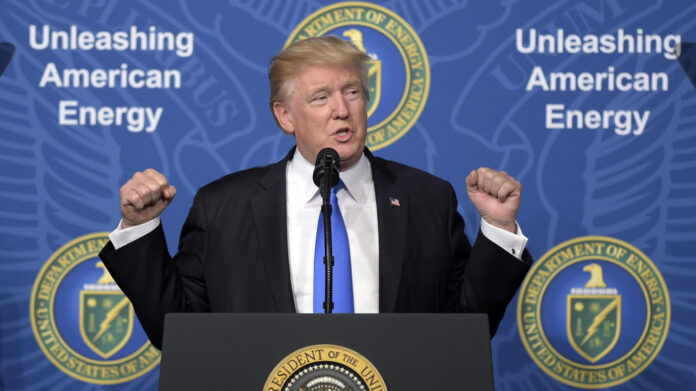US President Donald Trump is set to unveil a sweeping new tariff regime, effective immediately, on Wednesday, imposing reciprocal duties on major trading partners in a move that could disrupt decades of global trade norms, raise consumer costs, and spark widespread retaliation.
For weeks, Trump has argued that reciprocal tariffs are necessary to counter lower duties imposed by other countries and to address non-tariff barriers that disadvantage US exports.
A former Trump trade official indicated that the tariffs could target more than the 15 countries Treasury Secretary Scott Bessent had previously identified as having significant trade surpluses with the US. Bessent told Republican lawmakers on Tuesday that these tariffs would serve as a cap, which could be lowered if countries met US demands.
Ryan Majerus, a former Commerce Department official, noted that a universal tariff would be simpler to enforce and generate more revenue, while country-specific duties would be tailored to address unfair trade practices.
“Either way, the impacts of today’s announcement will be significant across a wide range of industries,” said Majerus, now a partner at the King & Spalding law firm.
Since returning to office, Trump has swiftly escalated protectionist measures. Over the past 10 weeks, his administration has:
-
Imposed a 20% tariff on all Chinese imports over fentanyl concerns.
-
Fully reinstated 25% tariffs on steel and aluminum, extending them to nearly $150 billion worth of downstream products.
-
Introduced a 25% global tariff on auto imports, set to take effect on April 3.
-
Set a Wednesday deadline for lifting exemptions on most Canadian and Mexican goods from fentanyl-related tariffs.
The stacking of these tariffs means a Mexican-built car that previously faced a 2.5% duty could now be subject to multiple levies—fentanyl-related tariffs, auto sector tariffs, and additional reciprocal duties—resulting in an effective tariff rate of over 52.5%.
The uncertainty surrounding Trump’s trade policy has rattled markets, with investors dumping stocks for over a month, erasing nearly $5 trillion in value from US equities since mid-February.
A Federal Reserve Bank of Atlanta survey found that corporate executives expect tariffs to raise consumer prices, while slowing hiring and economic growth. Yale University’s Budget Lab estimates that a 20% universal tariff would cost the average US household at least $3,400 annually.
Several US trading partners, including the European Union, Canada, and Mexico, have vowed retaliatory measures. Canadian Prime Minister Mark Carney and Mexican President Claudia Sheinbaum spoke on Tuesday about joint strategies to counter US trade actions, with Canada pledging to fight “unjustified tariffs.”
“With challenging times ahead, Prime Minister Carney and President Sheinbaum emphasized the importance of safeguarding North American competitiveness while respecting the sovereignty of each nation,” said Carney’s office in a statement.
US companies have already reported a surge in “Buy Canadian” movements, limiting their access to the Canadian market.
Trump has long argued that free-trade agreements have eroded American manufacturing and fuelled a $3 trillion US import market, leading to a goods trade deficit exceeding $1.2 trillion. However, economists warn that protectionist measures risk harming both the US and global economies, with tariffs expected to raise costs for consumers and businesses alike.
With the new tariffs set to take effect immediately, markets and businesses worldwide brace for further economic disruption, awaiting potential retaliatory measures from US trading partners.




